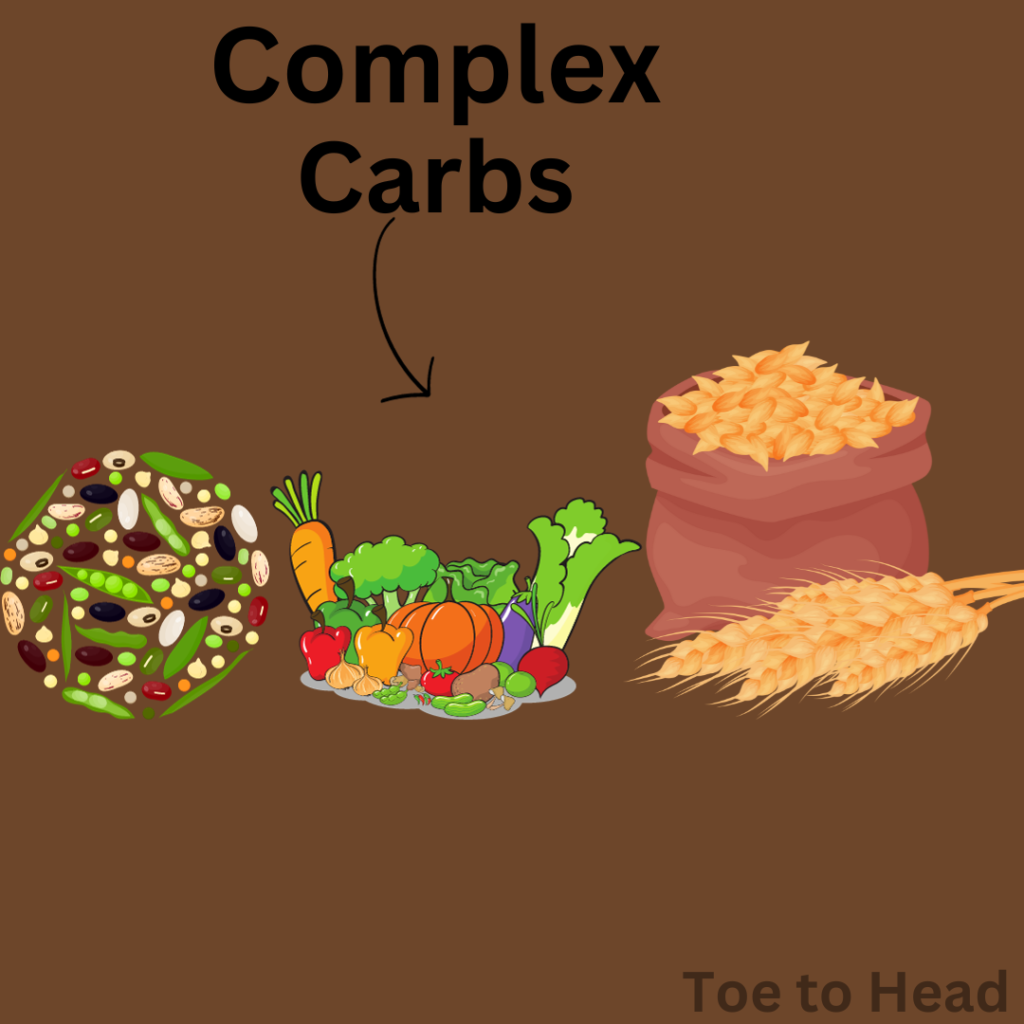Introduction:
In the ever-evolving landscape of nutrition, one dietary approach has been gaining significant attention for its potential in aiding weight loss – the high carbohydrate diet. Contrary to the popular belief that carbohydrates are the enemy of weight management, emerging research suggests that a strategic inclusion of carbs might be the key to achieving sustainable and effective weight loss. In this blog post, we’ll explore the science behind high carb diets, how they work, and practical tips to make this approach work for you.
Understanding the Science:
High carb diets primarily focus on incorporating a higher percentage of carbohydrates into your daily caloric intake. The science behind this approach lies in the role of carbohydrates as the body’s preferred source of energy. When consumed in adequate amounts, carbs can fuel your workouts, enhance metabolism, and prevent the breakdown of muscle mass during weight loss.
The Role of Complex Carbohydrates:

Not all carbs are created equal. Opt for complex carbohydrates such as whole grains, legumes, and vegetables. These foods release energy slowly, preventing sudden spikes and crashes in blood sugar levels. Additionally, complex carbs are rich in fiber, promoting satiety and reducing overall calorie intake.
Managing Macronutrient Ratios:
While a high carb diet emphasizes carbohydrates, it’s crucial to maintain a balanced macronutrient profile. Ensure an adequate intake of proteins and healthy fats to support muscle retention and overall nutritional needs. Striking the right balance can optimize the effectiveness of your weight loss journey.
Timing is Everything:
Consider incorporating carbs strategically around your workout sessions. Consuming carbohydrates before and after exercise provides the necessary energy for optimal performance and aids in muscle recovery. This timing can contribute to increased calorie burn and improved overall body composition.
Choosing the Right Carbs:
Not all carbohydrates are created equal. opt for nutrient-dense, whole-food sources rather than processed options. Include a variety of fruits, vegetables, whole grains, and legumes in your high carb diet for a spectrum of essential vitamins, minerals, and antioxidants.
Listen to Your Body:
Individual responses to dietary approaches vary. Pay attention to your body’s signals and adjust your carb intake based on energy levels, mood, and overall well-being. This personalized approach can optimize the effectiveness of a high carb diet for weight loss
Combating Common Myths:
Dispelling the myth that carbs inherently lead to weight gain is essential. The quality and quantity of carbohydrates matter more than their presence in your diet. By making informed choices and understanding your body’s unique needs, a high carb diet can be a sustainable and effective tool for weight loss.

Can you lose weight with a high carb diet?
Absolutely! Contrary to common misconceptions, a high carb diet can contribute to weight loss when approached strategically. By focusing on complex carbohydrates, managing overall calorie intake, and incorporating regular physical activity, individuals can harness the energy provided by carbs for effective weight management.
Can you lose weight by eating more carbs?
Yes, you can. The key lies in the quality and quantity of carbohydrates consumed. Opting for nutrient-dense, whole-food sources of carbs and paying attention to portion control can contribute to weight loss. Balancing carb intake with proteins and healthy fats ensures a comprehensive and sustainable approach to shedding those extra pounds.
Are high carb days good for weight loss?
Yes, incorporating high carb days strategically can be beneficial for weight loss. Cycling carbohydrate intake can help regulate leptin levels, a hormone crucial for metabolism and energy balance. By varying carb intake based on activity levels, individuals may enhance fat loss while preserving muscle mass.
What is the best carbohydrate to eat for weight loss?
The best carbohydrates for weight loss are complex carbs found in whole grains, vegetables, and legumes. These carbs release energy slowly, promoting satiety and preventing blood sugar spikes. Examples include quinoa, sweet potatoes, and lentils, offering a rich nutrient profile essential for overall health.
What is the number 1 worst carb?
While labeling a single carb as the “worst” is subjective, refined and processed carbohydrates, such as those found in sugary snacks and white bread, should be limited. These carbs lack essential nutrients, contribute to blood sugar spikes, and often lead to overeating, hindering weight loss efforts.
Which carbs to avoid to lose weight?
To facilitate weight loss, consider avoiding or minimizing the intake of refined carbs like sugary beverages, candies, and pastries. These sources lack nutritional value and can lead to excess calorie consumption. Instead, focus on whole, unprocessed carbohydrates to support your weight loss goals.
What foods are highest in carbs?
Foods highest in carbs include grains like rice and oats, starchy vegetables such as potatoes, legumes like beans and lentils, and fruits. While these are high in carbs, they also provide essential nutrients, making them valuable components of a balanced diet when consumed in moderation.
Is white rice a bad carb?
White rice, while a source of carbohydrates, is considered a refined grain, meaning it has undergone processing that removes the bran and germ. As a result, it lacks some nutrients found in brown rice. While white rice can be included in a balanced diet, opting for whole grains like brown rice, quinoa, or barley provides more nutritional benefits for weight loss and overall health.
Conclusion:
In conclusion, a high carb diet can be a game-changer for those seeking a balanced and sustainable approach to weight loss. By prioritizing complex carbohydrates, managing macronutrient ratios, and tuning into your body’s signals, you can harness the power of carbs to achieve your weight loss goals. Remember, the key is not to fear carbohydrates but to make informed choices that align with your individual needs and preferences. Embrace the science, listen to your body, and embark on a high carb journey towards a healthier, more vibrant you.



